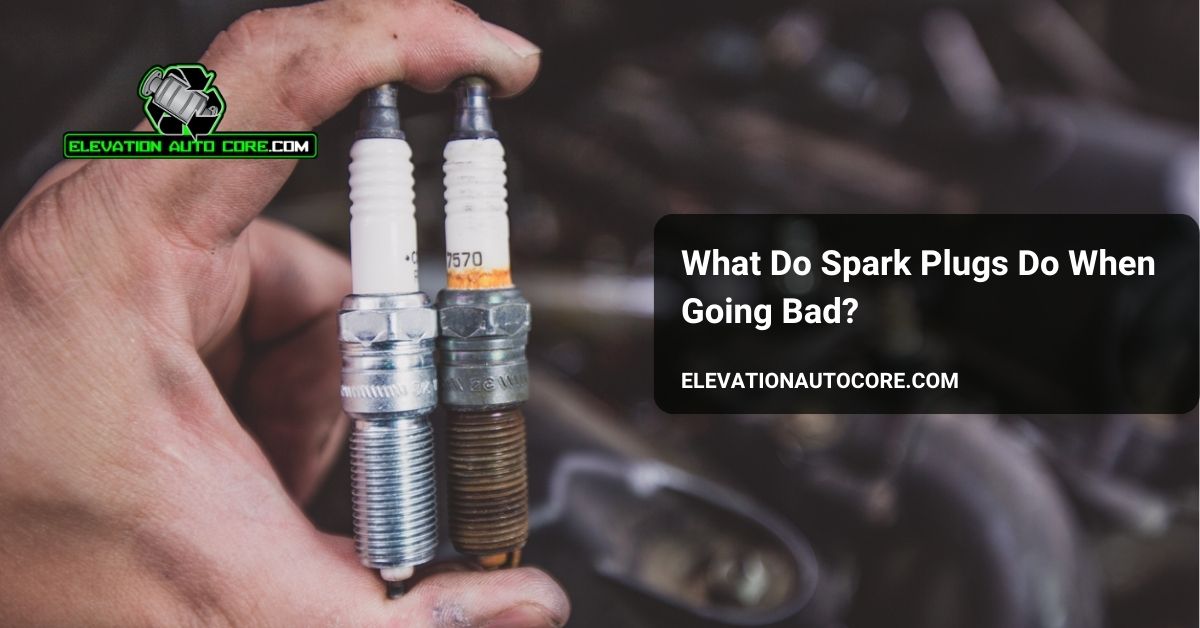What happens when spark plugs go bad in your car? These small but essential components play a critical role in igniting your engine, and when they fail, your vehicle’s performance takes a serious hit. From reduced fuel efficiency to rough idling, understanding the signs of bad spark plugs can save you time, money, and potential breakdowns. Keep reading to learn what to watch for and how to address the issue before it worsens.
What Are Spark Plugs And Their Function
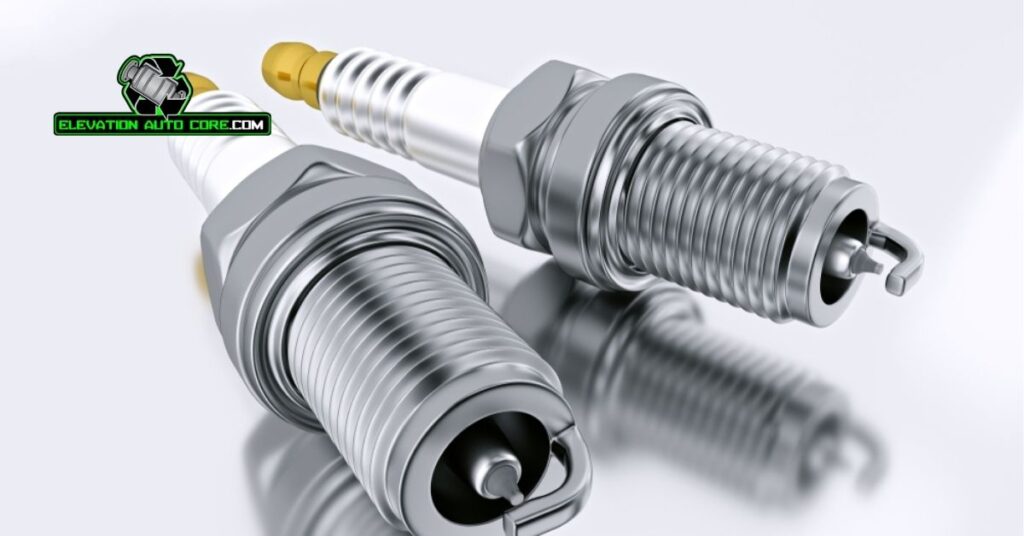
Spark plugs are essential components in your car’s engine, enabling the combustion process that powers the vehicle. They generate the spark required to ignite the air-fuel mixture inside the combustion chamber.
Importance Of Spark Plugs In An Engine
Spark plugs directly impact engine performance by ensuring efficient combustion. When functioning correctly, they help achieve optimal fuel consumption and power output. Faulty spark plugs can lead to misfires, reduced acceleration, and higher fuel usage.
Without working spark plugs, the engine cannot start or run. Their role in igniting fuel-air mixtures makes them critical for maintaining smooth engine operations. Regular inspection prevents issues and ensures consistent performance.
How Spark Plugs Work In Combustion
Spark plugs create a high-voltage spark to ignite the mixture of fuel and air in the combustion chamber. This ignition causes the controlled explosion that drives the pistons, generating power to move your vehicle.
A firm connection between the ignition system and the spark plug ensures accurate timing for the spark. If the plugs are worn or dirty, the ignition process weakens, leading to misfires and poor combustion efficiency.
Signs Of Spark Plugs Going Bad
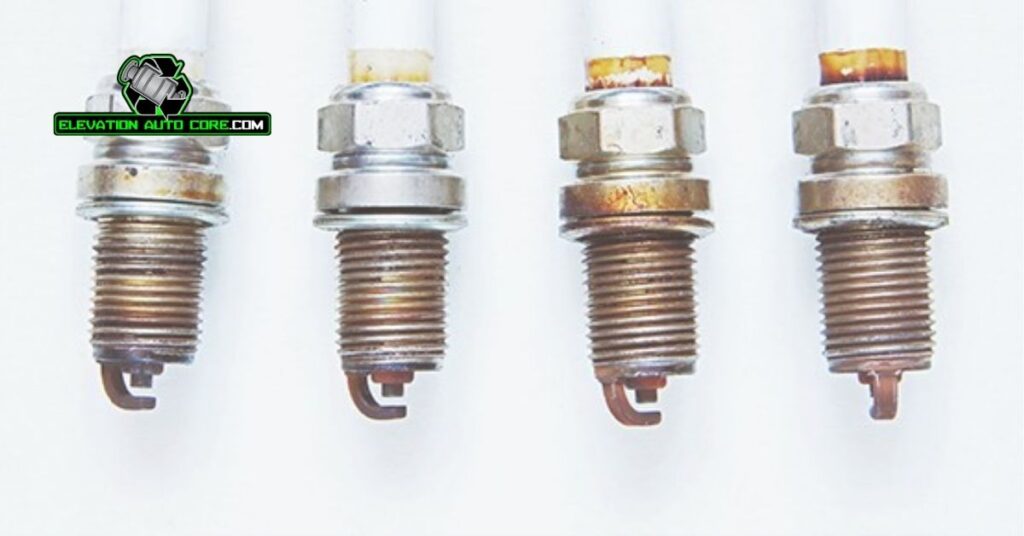
Faulty spark plugs can disrupt engine performance and cause noticeable issues. Recognizing symptoms early prevents further damage to your vehicle.
Misfiring Engine
An engine misfire often points to spark plug trouble. It occurs when the plug fails to ignite the air-fuel mixture in one or more cylinders. You might experience jerky acceleration or a sudden loss of power while driving. Left untreated, these misfires can damage the catalytic converter and increase repair costs.
Reduced Fuel Efficiency
A decrease in fuel efficiency signals inefficient combustion, often caused by worn spark plugs. Damaged plugs struggle to ignite the air-fuel mixture properly, leading to more fuel consumption. You’ll notice frequent refueling or reduced miles per gallon. Regularly inspecting spark plugs helps maintain optimal fuel economy.
Difficulty Starting The Engine
If your engine struggles to start, bad spark plugs could be the issue. Failing plugs create weak sparks, which delay or prevent ignition in the combustion chamber. You might hear cranking sounds without the engine turning over smoothly. Consistent starting problems can impact battery health over time.
Engine Knocking Or Rough Idling
Abnormal engine noises and vibrations usually indicate a spark plug problem. Knocking noises arise from uneven combustion caused by incorrect timing or weak sparks. Similarly, rough idling happens when the plugs misfire at low RPM, causing engine instability. Addressing these symptoms promptly helps avoid engine damage.
Causes Of Spark Plug Deterioration
Spark plugs degrade for several reasons, impacting engine performance over time. Understanding these causes helps you maintain engine efficiency and avoid costly repairs.
Wear And Tear Over Time
Repeated use eventually wears down spark plugs, reducing their effectiveness. Electrode material erodes from constant sparking, lowering the spark quality. High mileage engines often experience weaker ignition as a direct result of this material degradation. A typical spark plug lasts between 20,000 and 100,000 miles, depending on the material type and usage conditions.
Carbon Deposits And Build-Up
Accumulated carbon deposits alter the spark plug’s operation. These deposits form when fuel doesn’t burn completely during combustion, leading to a weaker spark. Oil leaks or incomplete combustion can increase the residue, further reducing efficiency. Deposited carbon decreases conductivity, causing misfires or poor fuel economy.
Damage Due To Incorrect Installation
Improper installation can significantly harm spark plugs. Over-tightening may crack the plug’s insulator, while under-tightening creates gaps that impact ignition. A misaligned plug disrupts the connection to the ignition system, producing inconsistent sparks. Using the wrong type of plug for your engine can also accelerate wear or cause immediate damage.
Effects Of Bad Spark Plugs On Vehicle Performance
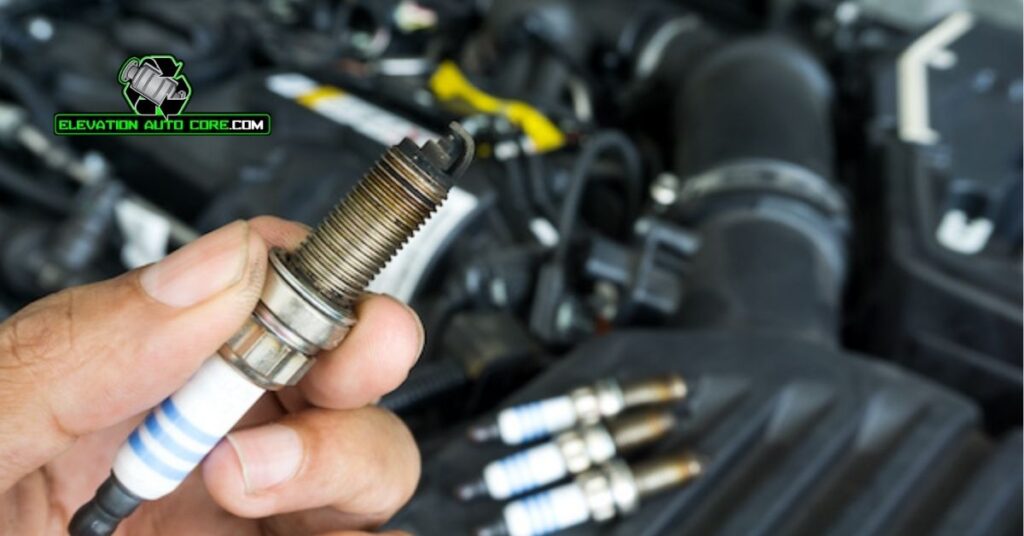
Faulty spark plugs can disrupt your car’s performance in noticeable ways. Their condition directly affects how the engine runs, impacting acceleration, emissions, and overall engine health.
Impact On Acceleration
Bad spark plugs negatively affect your car’s power delivery. When they fail to generate a strong and consistent spark, misfires occur, causing jerky or sluggish acceleration. Your vehicle might hesitate when you press the gas pedal, especially during high-speed driving or under load. This loss of responsiveness can make overtaking or climbing hills challenging.
Impact On Emissions
Worn spark plugs contribute to incomplete combustion in the engine. Without proper ignition of the air-fuel mixture, unburned fuel escapes into the exhaust system, increasing harmful emissions such as hydrocarbons and carbon monoxide. High levels of pollutants can lead to failed emissions tests and environmental concerns. Poor combustion also reduces overall fuel efficiency, increasing your vehicle’s carbon footprint.
Potential Engine Damage
Continued use of bad spark plugs may cause important wearable damage to engine components. Misfires from failing plugs create excessive heat and stress on the catalytic converter, leading to premature failure. Damaged converters are expensive to repair and reduce the engine’s ability to properly process exhaust gases. Poor combustion can also lead to carbon deposits in the cylinders, further reducing performance and potentially damaging pistons, valves, and other internal components. Recognizing these risks early protects your engine from costly repairs.
How To Identify And Fix The Problem
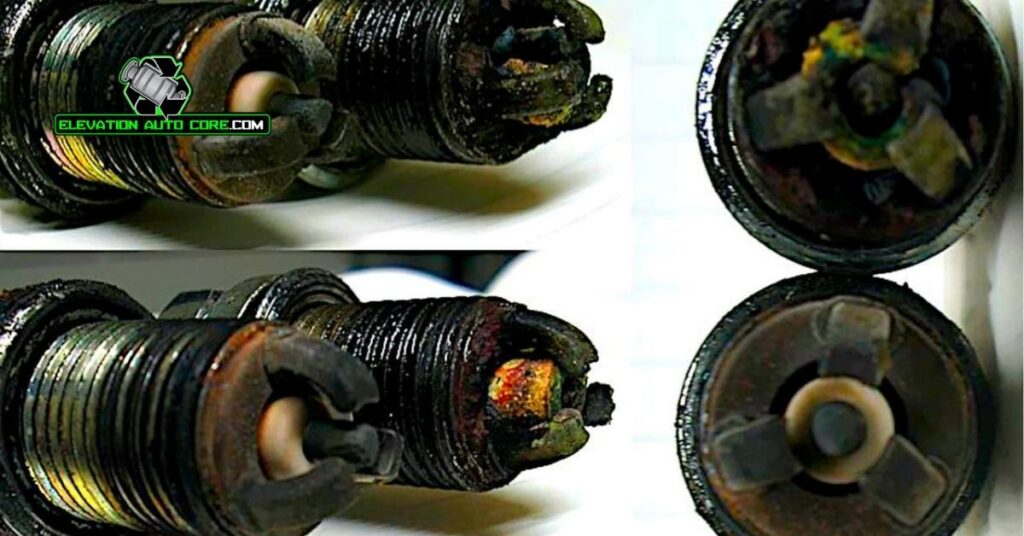
Bad spark plugs can harm your engine’s performance if not identified early. Addressing the issue promptly can save you from costly repairs and extended vehicle damage.
Visual Inspection Techniques
Begin by inspecting the spark plug’s appearance for clues. Look for black soot on the electrodes, as this often signals carbon deposits or poor combustion. Check for melted or worn-out electrodes, which indicate excessive heat or old age. Examine the ceramic insulator; cracks or chips may result from improper installation or detonation issues. A light tan or grayish appearance typically reflects healthy spark plugs, while any deviations suggest problems.
Use a spark plug gap tool to measure the gap between electrodes. A gap that’s too wide or narrow alters ignition timing and reduces efficiency. Always compare these measurements with the manufacturer’s specifications for your vehicle, as improper gaps cause misfires or weak ignition performance.
When To Replace Spark Plugs
Mileage is a strong indicator of when to replace spark plugs. Most modern plugs last between 20,000 and 100,000 miles, depending on the material type like copper, platinum, or iridium. Refer to your vehicle’s manual for exact recommendations if unsure. Replace spark plugs sooner if you notice symptoms such as difficulty starting, rough idling, or increased fuel consumption.
Don’t overlook performance changes or repeated misfires. Multiple failed sparks reduce engine responsiveness and may overwork ignition coils, leading to further damage. Immediate replacement prevents worsening these issues.
Preventative Maintenance Tips
Schedule regular engine checkups to monitor spark plug condition. Maintain a clean air filter to avoid contaminants entering the combustion chamber and causing deposit build-up. Use fuel additives when necessary to minimize carbon deposits, especially if you frequently drive in stop-and-go traffic.
Always choose spark plugs matching your vehicle’s specifications. Using incompatible types or skipping replacements leads to ignition inefficiencies. Tighten plugs to recommended torque specifications during installation to prevent potential misalignment or damage. Regular maintenance extends both spark plug life and engine performance.
Conclusion
Recognizing the signs of bad spark plugs and addressing them promptly can save you from costly repairs and keep your vehicle running smoothly. By staying proactive with regular inspections and maintenance, you’ll ensure your engine operates efficiently and avoid potential damage to critical components.
Don’t underestimate the role spark plugs play in your car’s performance. A little attention now can go a long way in preserving your vehicle’s reliability and fuel economy. Stay informed, act early, and keep your engine in top shape.

